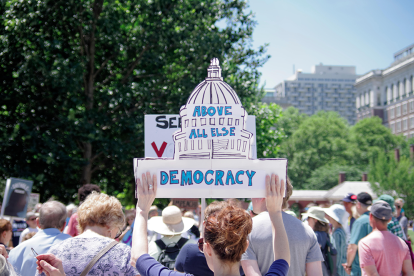Take the fight against disinformation to where it goes viral – on social media. Here are hundreds of messages you can personalize and share with a click. See all the messages by clicking on the right arrow ( >) in the margin, or by heading over to our social media sharing platform.
To send your message immediately, first choose your network–like Facebook, or Bluesky– by clicking the little triangle by the network name you see. It's in the same line as “Select social network.” Then click the “Share on …” button. You’ll get the hang of it!
Disrupt Disinfo on Social Media
